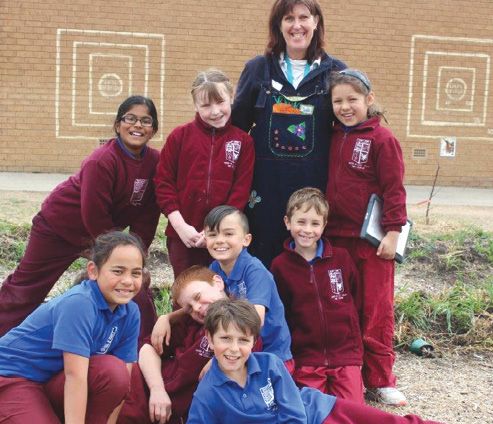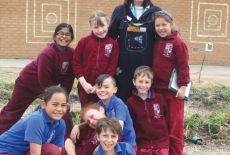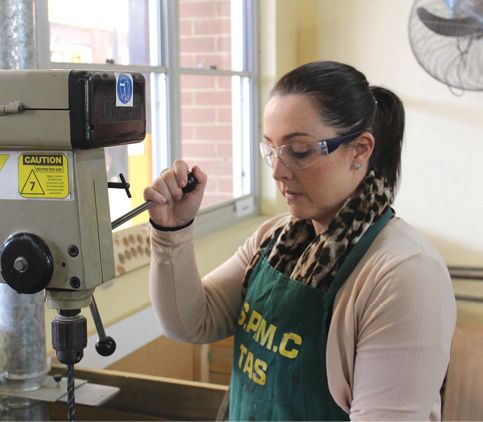
Karen Norley from St John the Apostle in the ACT
“It links to both Year 7 and Year 8 TAS courses – Sustainable Design and Urban Design.
“We’re keen for students to learn about recycling materials, where food comes from, and to eliminate or minimise waste.”
St John the Apostle Primary School in the ACT has a Stephanie Alexander Kitchen Garden Program. They have a vegie garden and converted an old classroom into a working kitchen.
“This year other class levels have experienced the program and our aim is to expand the program so the whole school enjoys this learning space.
“We would like to implement an irrigation system and set up a shed for our garden. We are teaching our students where our food comes from, how to cook it and how to look after our world.”
Loyola College Rooty Hill’s Wicking Kitchen Garden aims to educate students from culturally and linguistically diverse backgrounds in the principles and value of sustainability through the creation of a vegetable garden that will service seven hospitality classes and a school cafeteria.
“VET students in the school undertake a module participate in environmentally sustainable work practices so this project would enable them to see the theory operating in practice. It is anticipated that as these garden beds are low maintenance, require minimal watering and provide bountiful supply of produce, it will support hospitality classroom practicals and extend sustainability practices to the wider community.”
St Therese’s Catholic Primary School Lakemba’s Outdoor Learning Area and vertical solar power reticulation system aims to provide students with an outdoor learning centre next to their wonderful vegetable gardens so that they can comfortably sit and scientifically and mathematically learn through the gardening processes.
“Additionally, a solar power reticulation water system will enable students to grow hydroponic vegetables which will teach them about water consumption, sustainability and space saving alternatives as most of our students do live in small units without gardens to cultivate. Thus the environmental gains for our school will be a reduction in the cost of water and students will reap the benefits of producing more vegetables.”
Despite the tight turnaround time, the Union received 43 applications and many more expressions of interest.
The IEU and Teachers’ Mutual Bank plan to continue the program in 2017 with wider timeframes for application and implementation.
The Union congratulates the winners and thanks all the applicants for their commitment and enthusiasm for this vital area of work.













































































































































